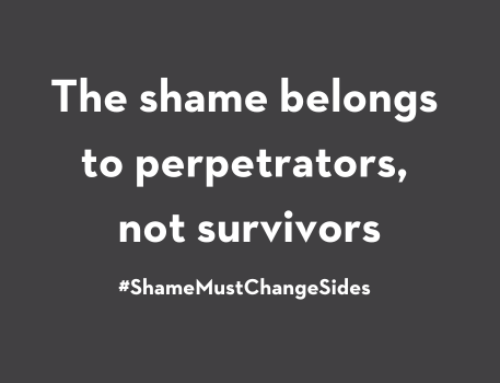Advances in technology are giving abusive partners and stalkers the opportunity to expand their control when they are away from their target. Technology can make it possible for abusers to remotely monitor their intimate partners through spyware and smart home devices, access their target’s online activities, and control household items such as lights, thermostats, and electronics.
The abuse can include criminal offenses like stalking, but data shows that technology is becoming domestic abusers’ tool of choice to emotionally abuse women as well. Ninety-eight per cent of perpetrators of violence have used technology to intimidate or threaten a woman, according to a 2012 national survey of anti-violence workers in Canada. At Dixon Transition Society, an organization that provides transitional housing programs for women and children in BC and receives funding from the Canadian Women’s Foundation, staff are hearing about technology being used in various ways. “Several women have told us their abuser continues to harass and verbally or emotionally abuse them via text messages,” said Claire Kalfon, Dixon’s Manager of Operations and Services. “They also expressed fears that negative things were going to be posted on social media by the abuser and by others that are siding with the husband.”
One of the challenges of tackling tech abuse is that abusers on the web are difficult to prosecute. At Dixon, a client said her abuser posted compromising intimate photos of her on an escort services website to show she was an unfit mother. But the police couldn’t prove that her abuser uploaded the photos, and since the website was outside of Canada, they couldn’t help to get the photos removed.
Experts are calling on companies to address the risks of tech abuse before it takes place. Studies show that some spyware companies market their products to people who want to monitor their significant others’ activities. Researchers recommend that companies consider tech abuse prevention measures when developing apps, while also suggesting that app stores ban spyware and send notifications to mobile devices that have these apps installed to inform people who are being monitored without their knowledge.
Government and legal institutions can also help prevent tech abuse. Researchers recommend that provincial and federal governments invest in research, education and resources to prevent abuse occurring in the digital sphere, as well as updating their existing legislation to effectively respond to tech abuse.
In the meantime, this form of abuse continues to amplify abusers’ power and takes a major toll on women’s mental health. It’s a form of cyberviolence, which can damage women’s self-image, and cause anxiety, fear, shame, and humiliation. This kind of abuse can also impact women’s social and economic lives, by prompting them to withdraw from activities and making it difficult to focus on work.
Last October, CBC reported that a woman in Winnipeg found that video cameras had secretly been installed in her new home, where she thought she was safe from her former partner. There were also threats that the video footage would be published online. “I can’t sleep at night, knowing my videos are outside in the world,” she said in the story. “I have this constant feeling that someone’s watching me. My sense of safety, my sense of trust is all gone … I don’t know how much he recorded, how much he has.”
After her ex-husband pleaded guilty to breaking and entering, he was sentenced to two years in jail. The Winnipeg woman, Sara Usman, has since had the publication ban on her name lifted so she could share her experience publicly, and start a support group called the Shameless Circle to empower other women who have experienced shame for various reasons.
“We share, we give tips — so it’s quite powerful,” Usman said. “It’s given me a lot of strength and actually the ability to move forward.”
If you are experiencing tech abuse or other forms of online harassment:
- Talk to someone you trust. It may help to relieve the stress and emotional turmoil that comes with experiencing online harassment. Teens experiencing online abuse can confide to a trusted adult to help them.
- Document the abuse. It’s important to keep a permanent record of what happened. If it’s too difficult to read or see the abusive content, family and friends can assist women experiencing online harassment by keeping track of the abuse for them.
- Contact the police. If you feel unsafe or the abuse worsens, file a police report. It could lead to a police investigation, as well as possible criminal charges.
- Anti-violence advocates or shelter workers may have the expertise to help women who become targets of tech abuse. They may be able to do a safety and privacy audit to figure out the information and access to the digital tools that the abuser might have to continue the harassment.
- Kids Help Phone is a 24/7 national support service available to young people who need help or someone to listen to them without any judgement. They offer professional counselling, information and referrals in English and French.
- Crisis Text Line is a 24/7 national texting service powered by Kids Help Phone. It’s available in French and English to everyone who is dealing with a crisis or issue. People can chat with a volunteer Crisis Responder, who is there to listen and empathize with any issues that the person is going through, as well as provide referrals.
- ConnexOntario is a free 24/7 mental health and addictions service available via phone, email and webchat – this service is provided in over 170 languages to people who need referral and health service information in Ontario.
- Family Law Education for Women has shelter information and legal resources for women who want to learn more about family law rights.
- Canadian Resource Centre for Victims of Crime has a wealth of information that provides support to individuals who experience crime.
- Take Back the Tech! is a global campaign that offer ways people, particularly women and girls, can work together to take control of technology and use it for activism against gender-based violence.
Learn More:
- No – Regulating Online Hate Won’t Cost Us Free Speech
- Digital Diversity: Together We Can Improve Tech for Everyone
- The Warning Signs of an Abusive Relationship
Take Action:
Sign up for our e-newsletter to have our latest stories and resources sent to your inbox. Follow us on Facebook and Twitter to join a national conversation about empowering girls.







